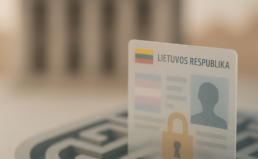The U.N. on Thursday used the annual International Human Rights Day to highlight the economic cost of anti-LGBT discrimination.
Free and Equal, a U.N. campaign that seeks to promote LGBT around the world, released a video that actor Zachary Quinto narrates. It cites, among other things, a World Bank study that concludes discrimination based on sexual orientation or gender identity could cost an economy the size of India’s $32 billion a year.
“The cost of homophobia and transphobia is simply colossal,” says Quinto in the video.
Charles Radcliffe, a senior human rights advisor for the Office of the U.N. High Commissioner for Human Rights, officially debuted the video during a panel on the issue that Marcus Mabry of Twitter moderated.
“Discrimination hurts people,” said Radcliffe. “It hurts companies. It hurts entire countries.”
James Heintz, an economics professor at the University of Massachusetts, Amherst, said that anti-LGBT discrimination lowers productivity and increases health care costs because of higher rates of stress, depression and suicide among affected groups.
“There’s an intrinsic value to respecting, protecting and promoting the rights of all people, including those in the LGBT community, regardless of the economic cost,” said Heintz.
Kasha Jacqueline Nabagesera, director of Freedom and Roam Uganda, a Ugandan advocacy group, said most of her LGBT friends have fled the country because of rampant homophobia and transphobia.
“That is talent being lost to the country,” she said.
U.N. General Assembly President Mogens Lykketoft and Dan Bross, senior director of business and corporate responsibility at Microsoft, also took part in the panel that EU Ambassador to the U.N. João Vale de Almeida opened.
“Regrettably, we still have a long ways to go before LGBT people are treated as equal citizens everywhere,” said Lykketoft.
Special U.S. Envoy for the Human Rights of LGBTI Persons Randy Berry, Colombian Ambassador to the U.N. María Emma Mejía, OutRight Action International Executive Director Jessica Stern and Out and Equal Workplace Advocates CEO Selisse Berry were among those who attended. The U.N. Development Program also announced a new index that seeks to collect data to better measure the impact of anti-LGBT discrimination.
“Leaving no one behind is a message: No one behind,” said Mejía.
The Washington Blade asked Nabagesera whether economic boycotts of Uganda and other countries over their anti-LGBT rights records are effective.
“We really do not support boycotts,” she said at the end of the panel, noting that calls to boycott her country after President Yoweri Museveni signed the Anti-Homosexuality Act in 2014 caused a backlash. “Exclusion does not just affect the individual. It affects everyone around us.”
Bross agreed.
“The solution is not one of exclusion,” he said.
Trans people have same ‘potential as anybody else’
International Human Rights Day commemorates the ratification of the Universal Declaration of Human Rights by the U.N. General Assembly on Dec. 10, 1948.
U.S. Ambassador to the U.N. Samantha Power on Thursday released a video in which she speaks with Caitlyn Jenner about trans rights in this country and around the world. Secretary of State John Kerry also issued a statement that acknowledged International Human Rights Day.
“Today, we recommit to the truth that human beings of every faith, ethnicity, sexual orientation and background are endowed with ‘equal and inalienable rights,’” he said.
Trans and intersex advocates from Australia, the Philippines, Indonesia, Turkey, Ukraine, the Netherlands, South Africa, Colombia and Costa Rica gathered at a law firm in Midtown Manhattan on Wednesday for a briefing that OutRight Action International organized.
Mikee Nunez Inton of the Society of Transgender Women in the Philippines and the International Lesbian Gay Bisexual Transgender Intersex Association (ILGA) said more countries need to legally recognize trans people to ensure “their gender experience is reflected in their documents.” Franco Fuica of Organizing Trans Diversities, a Chilean advocacy group, highlighted a bill that would allow trans people in the South American country to legally change their name and gender without sex reassignment surgery.
“We are transgender people who have all of the potential as anybody else,” he said.
Murat Koylu of Kaos GL, a Turkish LGBT advocacy group, and Laura Frida Weinstein Nesenbon, a trans advocate in Colombia, both noted that anti-trans violence remains rampant in their respective countries. Nicole Santamaría, who describes herself as a “intersexual, transsexual, heterosexual woman” from El Salvador, on Tuesday also discussed this issue during a Human Rights Campaign and Human Rights First reception at the Newseum in D.C. that marked International Human Rights Day.
Santamaría said she fled to the U.S. from her Central American homeland in April after surviving “one of the several attacks against my life.” The pointed out that 15 trans women and four gay men have been killed in El Salvador in the eight months since she left.
“I came to the U.S. because I chose life,” said Santamaría. “Every breath I take is an act of resistance.”
Anti-gay Gambian president’s nephew speaks in D.C.
Alagie Jammeh, the nephew of Gambian President Yahya Jammeh, also spoke at the Newseum.
Alagie Jammeh — a student at the University of California, Santa Barbara — lost his government scholarship after posting a pro-LGBT message to his Facebook page.
He told the Blade earlier this year that he faces life in prison or even death in his homeland over his position. Alagie Jammeh on Tuesday said he has begun the process of seeking asylum in the U.S.
“I will never go back to Gambia to apologize to anybody because I did not do anything wrong,” he said. “I do not regret speaking out.”
Source: www.washingtonblade.com
Picture: www.un.org




